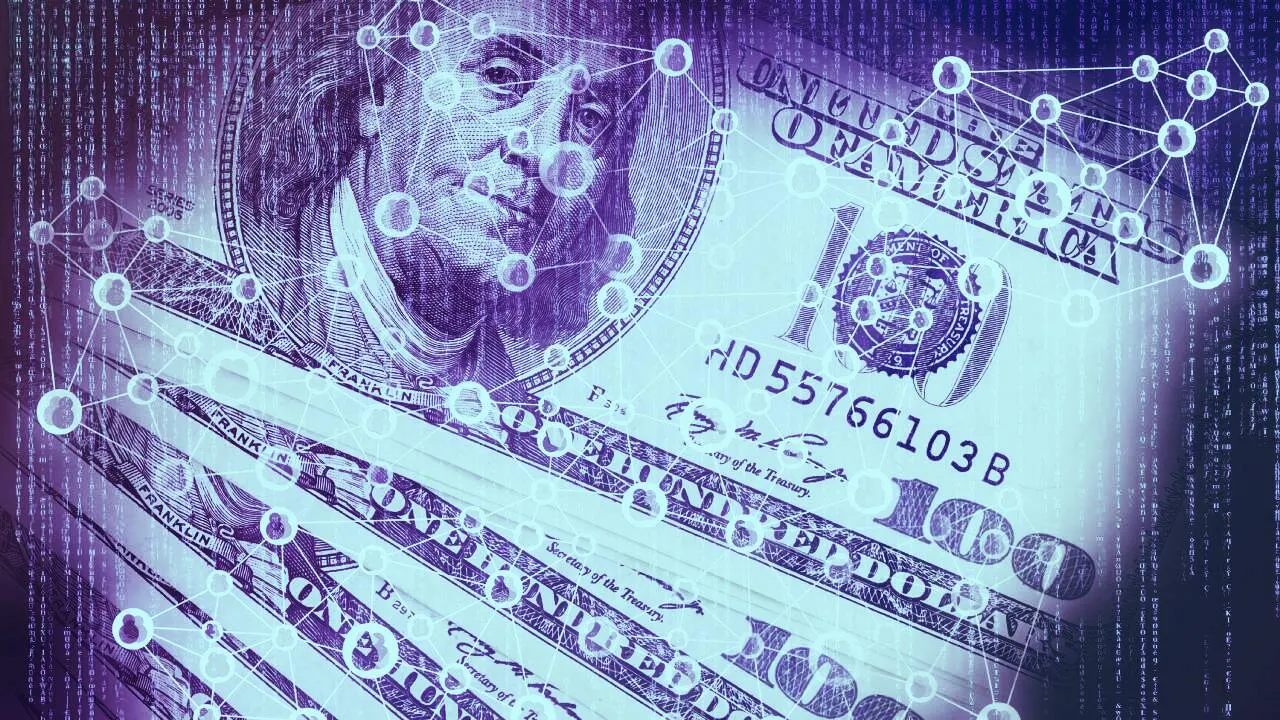In brief
- Nearly 25% of surveyed Americans want a digital dollar in place of the US dollar.
- While still a minority, the mark is double than seen in a 2019 survey.
- The Genesis Mining survey also sampled financial knowledge and bank perceptions.
An official, government-backed United States digital dollar might still seem like a far-off possibility, despite some chatter in Congress earlier this year and over the summer, but a new survey suggests that Americans are at least coming around to the idea.
Genesis Mining, a large-scale Bitcoin mining operation with facilities in Iceland and Sweden, recently released the results of a survey conducted in July with 400 Americans, each of which was asked questions about the US Federal Reserve, banking, and other related topics.
According to the survey, nearly 25% of respondents believe that the United States should replace the dollar with a digital dollar, while about 15% said they didn’t know and 60% said no. While still a minority of people with that belief, it’s nearly double the 13.3% who responded yes to the same question in Genesis Mining’s 2019 survey.
Furthermore, 48.3% of respondents said that they do not believe that the United States will still use physical money in 100 years, while only 26.8% replied yes. Additionally, 87.3% of those surveyed said that they have heard of Bitcoin and cryptocurrency, and in a separate question, some 35% said that crypto is an “interesting idea that may have potential, but too early to tell.”
Elsewhere, the survey suggests a gulf in understanding how the US dollar and Federal Reserve actually work today. For example, when asked what the US dollar is backed by, 28.5% of those surveyed replied gold—but the dollar hasn’t been tied to gold since 1971. And asked who is responsible for creating more US dollars, just 58.8% of respondents correctly said that it was the Federal Reserve.
Genesis Mining also surveyed perceptions about banks—and found that banks compared favorably to every other noted cultural institution, whether it’s the police (71% to 29%), Congress (89% to 11%), the media (87.5% to 12.5%), or lawyers (76.5% to 23.5%).
In short, based on the results of the survey, Americans apparently love banks, hate Congress and the media above all, and are gradually warming up to the idea of a centralized digital dollar and the end of cash.

